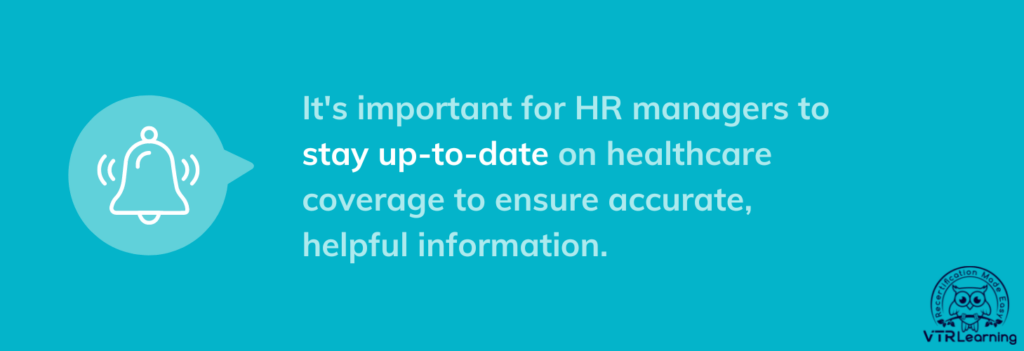
As the world continues to innovate and grow, new workplace trends emerge. For example, individuals now remain in the workforce later into life. A Gallup poll from 2018 listed the average age of retirement at 61. Whereas in 1991, most individuals exited the workplace around age 57. Of course, this is possible because of advances in medicine in physiological knowledge. Both of which contribute to the possibility of living longer, healthier lives. To put this in perspective, United Nations reporting puts current life expectancy around 78.93 years. But in 1990, it was 75.19 years. That might not seem like a huge difference, but it denotes the upward trend that has existed for decades. And all of this leads to an increase in Medicare coverage questions.
Sometimes the decisions to remain a part of the workforce past the general age of retirement is born of necessity. But for other individuals, it simply goes back to the fact that they can.

This trend isn’t without its share of complications, particularly when it comes to healthcare and employee coverage. Because Medicare coverage generally begins when a beneficiary turns 65. So, HR professionals who work for companies employing individuals past that age must grapple with difficult questions. In particular, those related to health insurance coverage and Medicare, a subject generally misunderstood.
It’s easy to provide false or inaccurate information to employees whenever it comes to the topic of Medicare. So, it is important for HR managers to stay up-to-date on issues related to healthcare coverage and its nuances. That way, they can make sure they’re offering accurate, helpful information.
4 Tips for Answering Employees’ Medicare Coverage Questions
1. Review a List of Frequently Asked Questions
Sometimes the best way to prepare for a question is to understand types of commonly asked questions. However, since not all beneficiaries have the same concerns, the depth and complexity of concerns can vary greatly between individuals. And of course, this all depends on the individual needs and prior knowledge. So, below is a list of twenty-five Medicare coverage questions beneficiaries commonly ask.
Common Enrollment Questions
- Will I automatically enroll in Medicare when I turn 65?
- How do I become eligible for Medicare health coverage?
- Is it possible to enroll in Medicare online?
- If I am still working when I turn 65, do I still need to enroll in Medicare?
- Is it possible to change Medicare coverage, and if so, how?
- Is it possible to enroll in Medicare prior to turning 65?
- What is the difference between Open and Special Enrollment?
- If I don’t enroll in Medicare before I turn 65, will there be a penalty?
Medicare Coverage Questions
- What is the difference between Original Medicare and Medicare Advantage?
- If I am traveling overseas and have a medical emergency, will Medicare still cover the cost?
- Will Medicare cover the cost of services not necessary for life, such as eyeglasses or chiropractic services?
- What types of Durable Medical Equipment (DME) does Medicare cover?
- What is the difference in coverage between Medicare Parts A and B?
- If I am 65 and my spouse is 63, can both of us be covered under my Medicare plan?
- When I enroll in Medicare, will I still need other health insurance coverage?
Questions About Medicare Acceptance
- Do all doctors accept Medicare?
- How do I find out whether or not my doctor accepts Medicare?
- If my chosen physician is not part of the Medicare network, will I have to find a new one?
- How does Medicare work?
- Do I have to enroll in Medicare every year, or is it a one-time setup?
Common Medicare Payment Questions
- If I am a dual eligible beneficiary, what order do Medicare and Medicaid pay in?
- If I have employee health insurance through a company, how does it interact with Medicare in terms of payment?
- How much is the monthly Medicare premium out-of-pocket?
- How do I submit a claim to Medicare?
- Does Medicare cover the full cost of medical expenses or will I still have to pay a deductible?
2. Get Answers to Common Questions
Often, answering Medicare-related question isn’t a simple matter of doing a quick Google search. It might require specialized knowledge that can only come from professional sources. And this is one reason why keeping up with continuing education is vital for HR pros. In order to prepare for common Medicare inquiries, they also need to know about changes in the healthcare industry. And this involves taking courses or attending events designed to teach that sort of knowledge.
Take Online Continuing Education Courses
Fortunately, there are courses that can give HR pros the knowledge they need to appropriately answer difficult Medicare coverage questions. And they can simultaneously earn continuing education credit to renew their memberships with organizations like SHRM and HRCI. Even members of non-HR related organizations like the AICPA could also earn credit for these courses.
VTR Learning is one such provider, with four different courses that make up a comprehensive, multi-level suite. Overall, the program equips business professionals with the knowledge to answers employees’ Medicare health coverage questions. After laying a basic foundation, these four courses construct a robust understanding of Medicare and the issues related to it. But it’s also worth noting that it does so through an interactive, online, self-study format. So, individuals actually interact with the information they’re learning. Furthermore, each course is accredited through SHRM, HRCI and NASBA. Which means they count toward continuing professional education goals.
In order, the courses are:
All four courses are available as standalone options for professionals who only need to brush up on a particular subject. But for those who want to start from the ground-up, they can be taken in order as a full suite. Consequently, they are perfect for both business leaders and employees who are about to retire from the workforce. To view the full list of Medicare courses offered by VTR Learning, check out the shop.
3. Prepare Your Script
Sometimes, it helps to prepare a script, to memorize a list of responses to general inquiries. Because these can be given any time an employee asks about Medicare-related information. Of course, this doesn’t mean HR managers should provide rote, unthinking answers to Medicare coverage questions. But concrete questions often have concrete answers that can be given across the board.
When it comes to complex problems, HR managers might need to turn to professional, in-depth sources. But for many of the FAQs listed earlier, there are solid responses to offer. So, in order to simplify the process, it’s best for HR leaders to learn which questions people are asking most. Then, they can memorize a script of accurate, helpful information to those questions. And this prevents having to stop, do an internet search, and spend valuable time tracking down an answer before responding. Ultimately, a script can simplify the process and expedite helpful information to confused members of the workforce.
4. Send Follow-Up Materials
When confronted with complex, challenging questions, it’s easy to forget there are resources to answer questions succinctly and adequately. HR managers would do well to create a resource folder that they can keep on-hand for difficult inquiries. Even beyond difficult Medicare coverage questions, it isn’t always likely employees will remember a direct, verbal response. Especially if the subject is confusing to begin with. So, find materials to send employees as a follow-up to help jog their memories. Then create a desktop folder where you can easily access those documents whenever necessary.
If one employee has a question about a Medicare issue, another probably will in the future. So, as you find resources and incorporate them into the follow-up resources folder, you will develop a compendium of helpful Medicare information. And ultimately, this can help get information out to organization members faster.
Start Your Medicare Training Today
Whether you’re an HR manager or an employee nearing retirement age, VTR Learning is here to help! Check out all of our Medicare Education courses.
Article written by Braden Norwood
Last updated March 14, 2023





